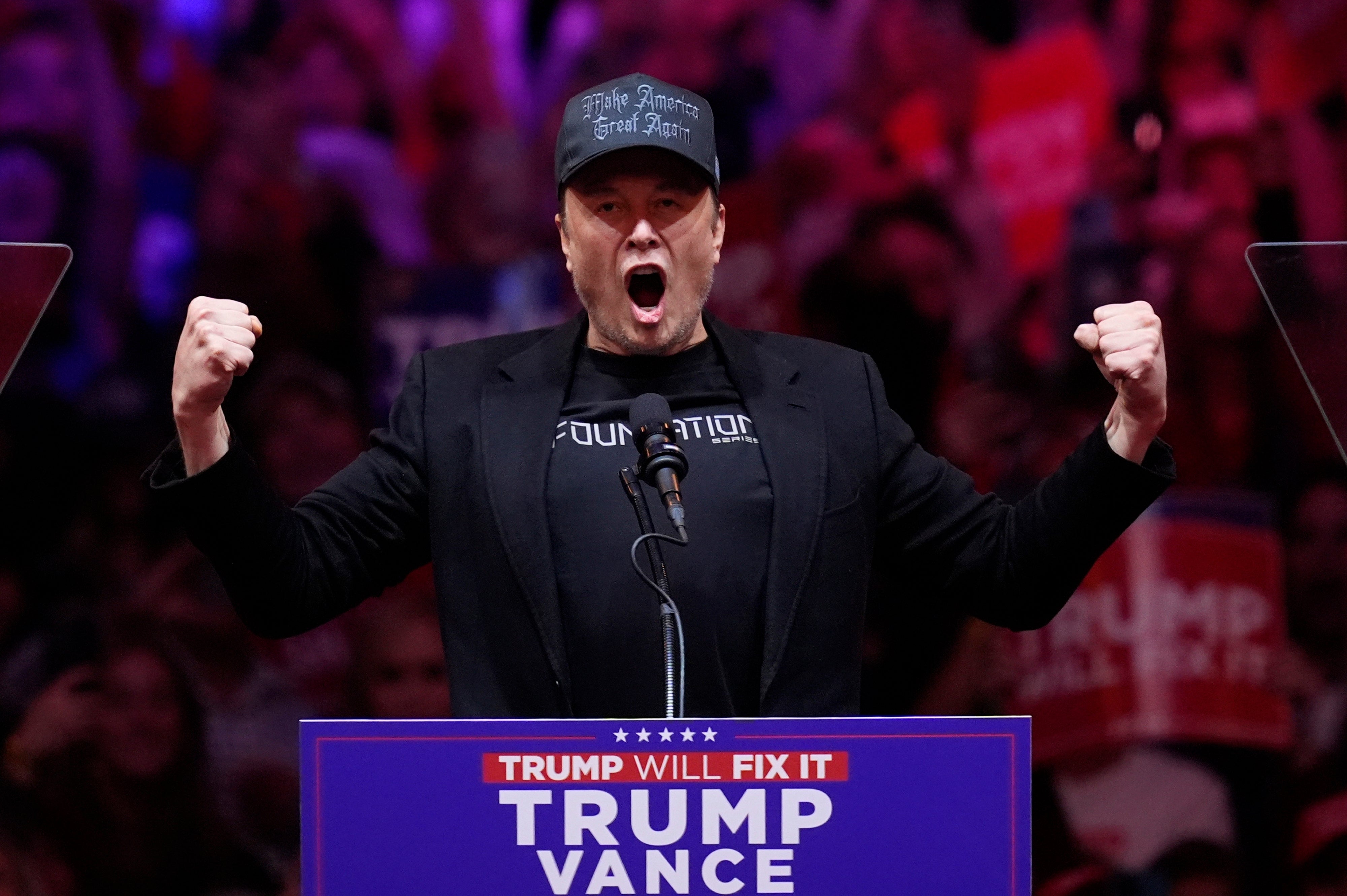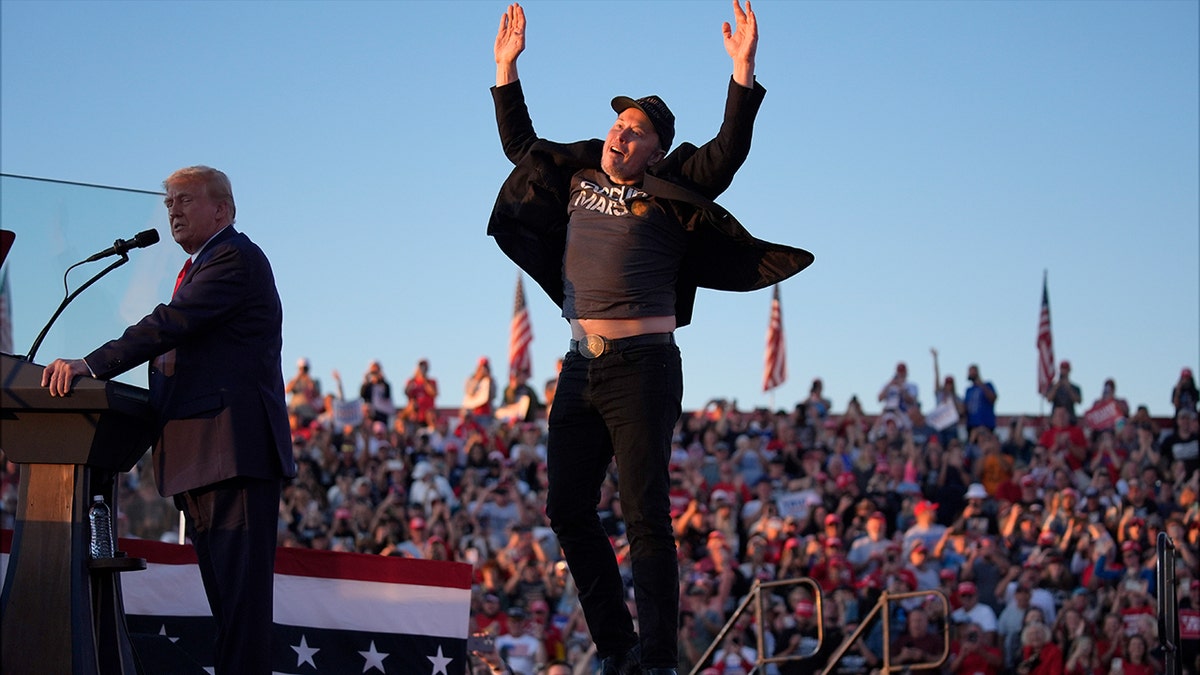Is the specter of election manipulation haunting the 2024 US Presidential election? Despite claims of widespread fraud and accusations leveled at prominent figures, official investigations and experts assert that the election was secure and without significant irregularities.
The aftermath of the 2024 US Presidential election saw a surge of online speculation and conspiracy theories, most notably concerning the role of billionaire Elon Musk and his Starlink satellite technology. The allegations, primarily fueled by social media posts, centered around the idea that Starlink was used to manipulate votes, potentially swinging the election in favor of Donald Trump, who defeated former Vice President Kamala Harris.
These claims gained traction online, with some users suggesting that Starlink had the capability to interfere with vote counting, particularly in key swing states. The allegations, often shared through platforms like X (formerly Twitter) and TikTok, painted a picture of clandestine operations that undermined the democratic process. One such post, shared on X, claimed that Starlink was used to "steal the election," while another TikTok video alleged that California and other swing states utilized Starlink to tally and count ballots.
However, these claims were quickly refuted by election officials at both the federal and state levels. Investigations confirmed that the election was conducted securely, and there was no credible evidence to support the allegations of fraud or manipulation. Despite this, the theories persisted, raising concerns about the spread of misinformation and its potential impact on public trust in the electoral system.
To provide context and clarity, here is a table summarizing the key details about Elon Musk, the central figure in these allegations:
| Category | Details |
|---|---|
| Full Name | Elon Reeve Musk |
| Date of Birth | June 28, 1971 |
| Nationality | South African, Canadian, American |
| Education | University of Pennsylvania (B.A. in Physics, B.A. in Economics) |
| Career Highlights | Co-founder of PayPal, Founder and CEO of SpaceX, CEO of Tesla, Owner of X Corp. |
| Net Worth (as of March 2024) | Estimated at $200+ billion |
| Key Companies | SpaceX, Tesla, X Corp. |
| Political Involvement | Known for expressing views on various political issues, including free speech, artificial intelligence, and space exploration. |
| Other Interests | Philanthropy, Space Exploration |
| Controversies | Various controversies, including his social media activity and business practices. |
| Website | SpaceX Official Website |
The conspiracy theories surrounding the 2024 election echoed similar claims made in the past, particularly those related to the 2020 election. In that instance, allegations of widespread fraud were repeatedly debunked by courts, audits, and election officials. This pattern highlights the enduring challenge of combating misinformation and preserving public trust in the democratic process.
The focus on Starlink technology in the 2024 election conspiracies raises questions about the role of technology in modern elections. While technology can enhance efficiency and transparency, it can also be exploited to spread false information and sow distrust. It's important to distinguish between legitimate concerns about election security and baseless claims fueled by speculation and political agendas.
Experts in election law and cybersecurity have been vocal in debunking the Starlink conspiracy theory. They emphasize the lack of technical feasibility, as well as the extensive safeguards in place to ensure the integrity of the voting process. These safeguards include rigorous auditing procedures, paper trails for ballots, and independent verification of election results. The existence of these checks and balances makes it extremely difficult to manipulate an election on a large scale without detection.
The origins of the claims can be traced back to specific social media posts that quickly spread across various platforms. These posts often contained vague accusations, unsubstantiated allegations, and calls to action. It is worth noting that several of the key claims originated from accounts known to promote far-right ideologies, adding to the context of the disinformation campaign.
Despite the lack of evidence, the theories have gained traction among a segment of the population, leading to increased polarization and further erosion of trust in governmental institutions. This emphasizes the need for vigilance, media literacy, and the active promotion of accurate information from credible sources. It also highlights the role of social media platforms in addressing misinformation and preventing its spread.
The spread of such misinformation can have detrimental effects, including undermining the legitimacy of the election results, and discouraging participation in the democratic process. When people begin to believe their vote doesn't matter, and their belief in their political system decreases, it erodes the very foundation of a functioning democracy. This makes it important to understand the core issues fueling these conspiracy theories and proactively counter the narrative with verified facts.
The 2024 election, as with any major democratic event, was subject to intense scrutiny and multiple layers of validation. State election officials, the federal government, and independent organizations all played roles in making sure the election ran smoothly and that every eligible vote was counted. These entities conducted audits, performed risk-limiting audits, and conducted manual recounts when needed.
One common argument used to support the conspiracy theories revolves around the "rapid" nature of the election results. Critics claim that results were made public "too fast" and that something nefarious occurred. However, in modern elections, it's completely normal for results to be tallied quickly, especially with the use of advanced voting technology, and particularly in larger states. The use of paper ballots, which provide a verifiable record, makes it possible to conduct audits and recounts, further ensuring the integrity of the outcome.
Another claim made by some social media users is that foreign entities interfered with the election. While it's true that some foreign countries have tried to meddle in US elections in the past, there's no evidence to support these claims in the 2024 election. Multiple government agencies, including the Department of Homeland Security, work hard to protect the integrity of US elections and proactively identify and counter foreign interference.
Election integrity is a complex and ever-evolving issue. While there are always opportunities to enhance the security of the voting process, such as improved voting technology, it is crucial to base discussions on credible evidence and verified facts. Spreading misinformation only serves to undermine public trust and make it more difficult to address real security concerns.
The allegations regarding Elon Musk's involvement stem from a combination of factors: Musk's ownership of Starlink, his high-profile social media presence, and his public support for Donald Trump. These elements have, in the eyes of conspiracy theorists, created a narrative that connects Musk to a possible effort to influence the election results. It's crucial to understand the distinction between genuine concerns about election security and baseless conspiracy theories that lack any credible evidence.
This is a crucial moment for democracy, and it requires collective effort to safeguard its integrity. Promoting transparency, upholding the principles of fact-based reporting, and encouraging civil discourse can go a long way in combating the spread of misinformation and promoting a well-informed electorate. The 2024 election results should be approached with a critical and informed mindset, relying on verified facts and credible sources rather than unsubstantiated claims.
Looking ahead, it is essential that election officials, technology providers, and social media platforms work together to enhance election security and combat misinformation. Public awareness campaigns that promote media literacy and educate citizens about the spread of false claims are also necessary. By taking these steps, we can strengthen the foundations of democracy and ensure that the integrity of the electoral process remains intact.



Detail Author:
- Name : Andreanne Sanford
- Username : murray.michelle
- Email : emily82@yahoo.com
- Birthdate : 2001-03-02
- Address : 668 Roberto Street Apt. 904 Stammfort, FL 36817
- Phone : (203) 350-5902
- Company : Kuhlman, Schimmel and Hermann
- Job : Construction
- Bio : Temporibus occaecati aliquid error eum asperiores. Ut qui ut vel debitis dignissimos et. Error tenetur itaque aliquid sed explicabo dolor.
Socials
twitter:
- url : https://twitter.com/gloverh
- username : gloverh
- bio : Est ullam voluptas quibusdam laborum voluptatem blanditiis. Error dolores omnis ut et veritatis magni deleniti.
- followers : 3762
- following : 267
tiktok:
- url : https://tiktok.com/@gloverh
- username : gloverh
- bio : Eum iure beatae similique cumque.
- followers : 3863
- following : 929
linkedin:
- url : https://linkedin.com/in/harmony6312
- username : harmony6312
- bio : Ut velit eveniet dolorum molestias unde dicta.
- followers : 218
- following : 1715